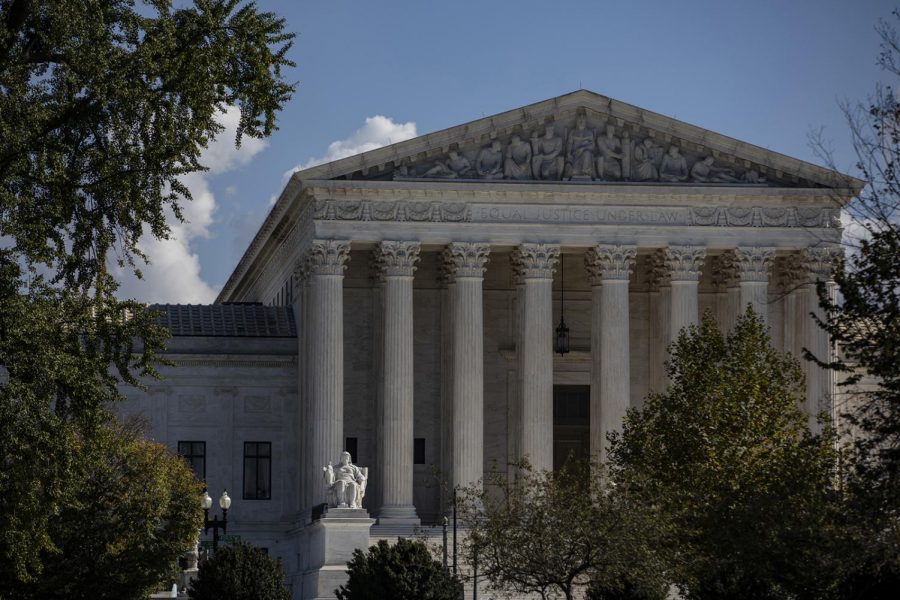Glenbard West Students Weigh in on Texas’s Recent Law on Abortion
On September 1st, the Texas state legislature passed a law on abortion, known as the “Heartbeat Bill”. This law prohibits women from undergoing abortion after about 6 weeks of pregnancy, when fetal heartbeat is detected. The law does not include exceptions for cases of rape and incest. It is arguably the strictest abortion law in the nation.
Significantly, the law authorizes private citizens —including those outside of Texas— to sue anyone who provides an abortion or helps a woman in obtaining an abortion in violation of the law. The law encourages citizens to report any suspected “illegal abortions”, offering a minimum reward of 10 thousand dollars to any individual who successfully sues anyone who “aids or abets” an abortion. This not only enables citizens to sue clinics and doctors, but also rideshare drivers and relatives who pay for abortions.
While the Texas abortion law obviously challenges the decision of Roe v. Wade, the landmark 1973 decision which states that women have the right to obtain an abortion until viability (typically between 22 and 24 weeks), the Supreme Court in its recent 5-4 decision refused to block the law from taking effect. While the Supreme Court’s ruling did not address the constitutionality of the law itself, the decision cited procedural issues as the basis for allowing the law to move forward.
Additionally, because the Texas state government does not enforce the law—private citizens enforce it through lawsuits instead—opposition groups have struggled with knowing whom to sue. Consequently, legal action against the law has been slow.
Organized opposition to the Texas law has quickly formed, however. The Biden Administration has been overtly against Texas’s law. The US Department of Justice filed a lawsuit against Texas over the law, and the case will be taken to federal court. As part of its lawsuit, the Department of Justice also filed for a preliminary injunction (a temporary order that prevents an action from taking effect to protect legal rights) of the abortion ban because it believes the law violates women’s constitutional rights. A federal judge in Austin agreed and granted the preliminary injunction, but Texas immediately appealed that decision.
Most recently, the 5th U.S. Circuit Court of Appeals sided with the Texas state government, saying that the Texas law should remain in effect while they are considering the case. This could be months. However, the Justice Department says that it will ask the Supreme Court to review the 5th Circuit Court’s decision to block the preliminary injunction.
In addition, another case has recently arisen that has the potential to determine whether all state laws placing previability restrictions on abortion are unconstitutional, as they directly challenge Roe v. Wade. The Supreme Court is scheduled to hear arguments in the case of Dobbs v. Jackson Women’s Health Organization on December 1, 2021. This case directly challenges the constitutionality of a 2018 Mississippi law that bans most abortions after 15 weeks. Many expect that the current conservative leaning Supreme Court may be more open to overruling Roe v. Wade, and the case has consequently received a lot of attention.
While national challenges to previability abortion bans such as those in Texas have arisen, controversy from the public remains. From a recently conducted anonymous survey of a few sample classes, Glenbard West students’ opinions and thoughts on this law were collected. While the responses are overwhelmingly pro-choice, it is difficult to determine whether this is an accurate reflection of the Glenbard West student body or an example of low participation in surveys.
“The vast majority of pregnancies are discovered after the deadline for abortion set by [Texas]. […]. Statistically, this law doesn’t work in any way”
- Anonymous Student
“I think this law is not pro-life, it is simply anti-choice and pro-birth. If it was pro-life then lawmakers would care more about affordable healthcare, food availability, [and] educational priveleges […] not just simply whether a child is born or not”
- Anonymous Student
“I think that the law is extremely unjustified and a violation of women’s rights. I’d love to see how the roles would change if it were men who carried the fetus for 9 months”
- Anonymous Student
“This [law] is unfair and [revokes] the important changes that have been made since the 70s, getting rid of the progression we have gone through”
- Anonymous Student
The survey seems to indicate that the teenage youth today tend to be pro-choice, however, another possible interpretation is that pro-choice individuals are more proactive in sharing their opinions.
While the longevity of Texas’s law on abortion remains to be seen, this legislation transcends the state and raises questions regarding the future of the Roe v. Wade decision under the current Supreme Court. Although only a state law, the ban could potentially affect women’s reproductive rights across all fifty states and change federal law for decades to come.










